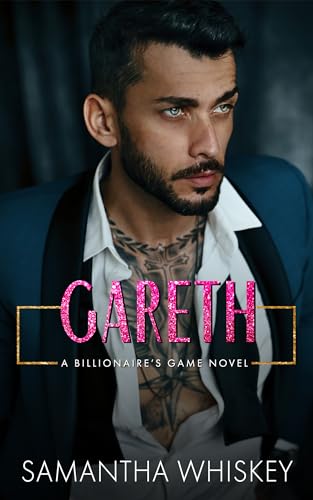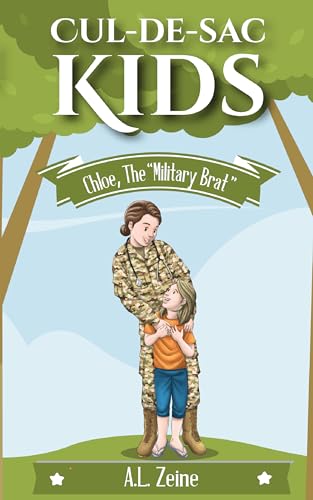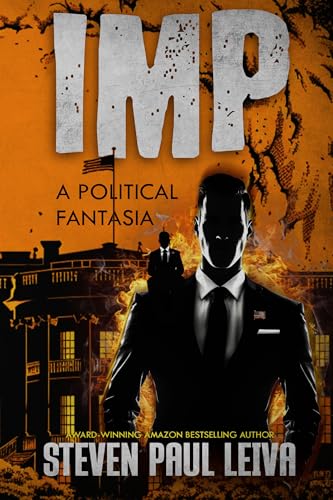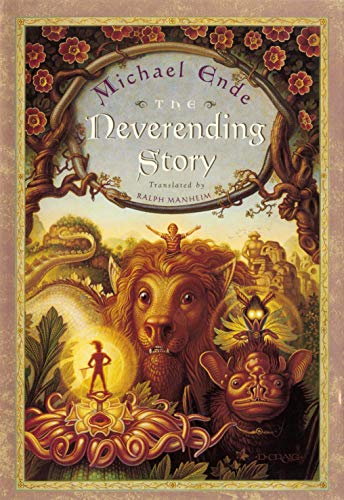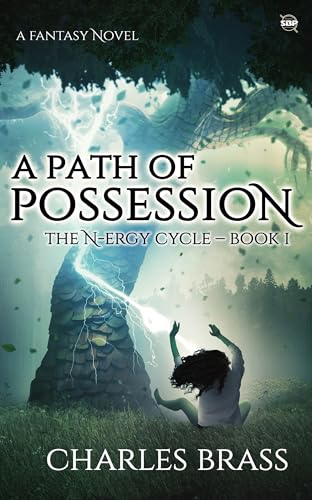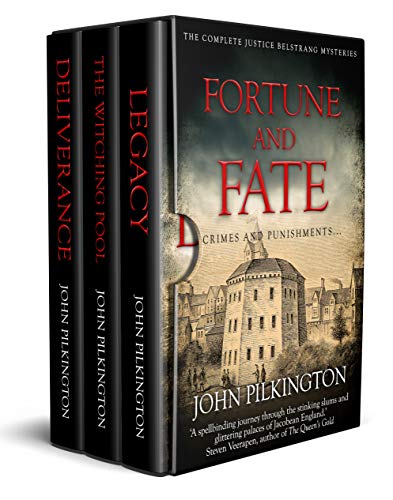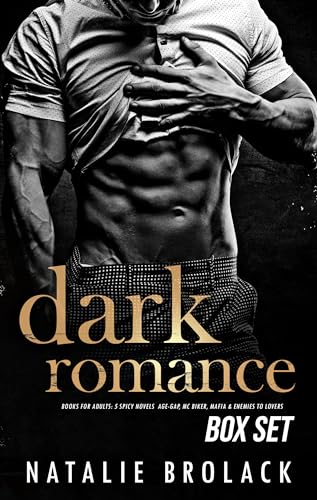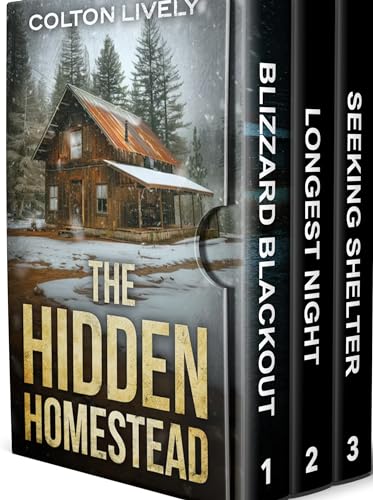Kirkus Reviews
In this engrossing mystery, Chloe Thomas discovers that finding the answer is personal — the man on death row is the father she never really knew.
in its Audible Audio Edition, Unabridged!
When he promises Finn Tully a reward to find his daughter and prove his innocence to her, Calvery knows the request is unreasonable. He also knows Finn needs his help, and Calvery’s daughter needs the money.Finn is clean, sober, on the downside of a prison term and not about to get swallowed up in Calvery’s problems until a series of unexplainable events propel Finn into the middle of the mysteries surrounding Calvery’s execution. When Finn finds the daughter, Chloe, in Clam Harbor, Washington, he soon realizes she is in danger. Chloe is a tough, no-nonsense charter boat captain involved in a smuggling operation with the very man who framed her father.Finn and Chloe join forces to find the truth behind Calvery’s execution and, in the process, discover the power of a father’s love and the miracles of the world beyond this one.
Praise for Thin Places:
A father’s love, a treasure, and redemption
“This novel is special… There is danger and intrigue, love and romance, and a murder to solve. …I recommend this well-written book…”
compelling debut novel!
an excerpt from
Thin Places
by Diane Owens Prettyman
Chapter One
Polunsky Unit, Huntsville, Texas
The way I see it, it’s the people you least expect, the people the rest of the world walk right by, maybe even turn away from, who know about the meaning of life, and by that I mean the world beyond this one and all those strings that connect us to it. I know now that Calvery was one of those people.
I was an addict and a liar, but Calvery entrusted me with his dying wish. Me. A guy so lost a bloodhound couldn’t find me. At the time, I thought he was nuts. Now, I think maybe the Divine did have something to do with it.
While doing time for one too many parole violations, all drug offenses, I mopped floors all over Polunsky, including death row. Each time I headed over there, good ol’ Spud, the Boss responsible for setting me up with my job as porter, gave me a cursory pat down. I could have packed a blade in my sock, green money in my shoe and a cell phone in my boxers, but we both knew I wasn’t that kind of convict. What I did was mule sugar.Calvery lived on the row, and we’d become friends.
For the past year, I had slipped him a pound of sugar every couple of weeks. It took eight cups to make a gallon of wine. In return, he always gifted me some of his homemade wine. This ended up a little risky for me, but in his situation, I figured he deserved a little hooch to wash down his bread and beans. He bought his fruit juice in the commissary just like the rest of us, but he needed sugar to ferment the juice into wine. To get sugar, you needed to know someone who worked in the kitchen. Being a porter, I had connections. It was easy enough for me to do him the favor of dropping a pound of sugar in his bean slot every now and then.
When I reached Calvery’s cell, his house as we called it, I pushed my trashcan up close. He dropped a plastic Sunkist bottle full of his wine into the trash. I covered it with the Houston Chronicle and started to slide some sugar through the slot. Talking to death row inmates was forbidden, smuggling sugar, even more serious, so even though Spud seemed to like me, I kept everything on the down low. First and foremost, I wanted to get out of this place.
“I won’t be needing that,” Calvery said. He stood behind the braided wires of his tiny window. I never got to see his face in plain view, but no matter when I saw him, his eyes beamed at me beneath raised eyebrows. In short, he always seemed lit. He lifted a cup to the window and said, “I got plenty to last me.”
This struck me as a strange thing to say given our arrangement with the sugar. “You attending AA meetings?”
But Calvery only smiled and said, “This is it.”
“What’re you talking about?”
“Tomorrow’s my last day.”
I knew this was inevitable, but we never talked about it. Why couldn’t this happen after my release? I looked stunned, I suspect. Shouldn’t I have felt something? But with the deadly heat of summer stuck to my skin and my teeth clamped tight, I felt empty as a well in August. “I can’t believe it.”
“It’s true,” he said. “How would you say it? I’m starting my descent.” After his comment, he paused waiting for his audience of one to laugh. Calvery had always liked my sayings and tried them on whenever he had a chance. When I just stood there mute and tight-lipped, Calvery added, “I’m in my final approach.”
“Stop.” I raised my voice. What do you say; what could I say?
“I can see the runway.”
“Stop it, I said.” I glared at him, and if a three-inch, steel-reinforced door hadn’t separated us, my hands would have been on his shoulders, shaking him, telling him to shut up. “It’s not funny.”
He put a finger to his mouth and hushed me in the same fatherly way I used to comfort Lacy, my daughter. That got me to thinking about Lacy. We used to walk along Galveston beach with her lime-green bucket and shovel until we found a spot to dig and watch for freighters entering the ship channel. I liked the shells; she liked the freighters. Once she found a sand dollar the size of a dime, perfect as a button. I still have it stowed away in my treasure box. One day I will give it to Lacy, maybe put it in glass and hang it on a gold chain.
Calvery would never see his little girl again. What little hope I had for the future depended on Brooke and Lacy. I had nothing to give Calvery except pity, a listening ear, and an honest look in the eyes. That day, while we locked eyes in that tier with its shiny floors and blinding white lights and inmates shouting at each other like men with nothing to lose, with my mouth dropped open in shock, and the look of happiness on his face—a look even the certainty of death didn’t chase away—I think maybe something passed between us.
“You promised you’d talk to Chloe, Finn,” he said. “Tell her I’m innocent.”
I had promised this about a year ago because Calvery couldn’t tell her himself. His family didn’t want anything to do with him, and he didn’t want anyone to know Chloe existed. That meant Calvery was doing the hardest kind of sentence—time with no visitation.
Calvery asked me because he figured no one could connect me to him. I was a safe bet. I made the promise to Calvery thinking I’d never have to make good on it—not that I’m the kind of guy that doesn’t keep his word—I just figured a guy doesn’t really expect you to follow up on something like that.
“I guess I never thought—.”
“They’d execute me?” Calvery laughed. He ran his fingers through his grizzled black hair.
For the last two years, I had selfishly repressed the idea of his impending death. He refused to be bothered by it; I followed suit. But now, the day had come, and I would have to make good on my promise.
“You forget, I’ve got a wife and daughter,” I said, keeping my eyes off him.
“They won’t suspect you. You don’t have any connection to me.”
“There’s money in it for you.” Behind the wire, Calvery looked every bit the priest in a confessional. “When you see her, ask her where her grandfather was buried.”
“And?”
“That will lead you to the treasure.”
Calvery always talked about the treasure, and I indulged him. I knew better than to scoff at a dying man’s fantasy. But I didn’t believe a word of it. If there were a treasure, surely Calvery wouldn’t have ended up on death row.
“I’m not expecting a treasure,” I said. Then I added, “Thanks anyhow,” because I might have sounded a little dismissive.
“Just the same, you’ll find it. I know you will.”
“I don’t get you,” I said. “You’ve got a good attitude for someone in your position.”
“I feel like I’m on the last leg of a long road trip and about to get home to a nice meal, a warm bed and a beautiful wife,” he said. “Besides, I know that God sent you to help me. I’m sure of it.”
“God wouldn’t send me to the mailbox.” I tapped the mop bucket with the toe of my shoe.
Any other guy talking like that I’d think he was crazy. But over the last couple years, I had learned Calvery knew the secret to survival, and it wasn’t the homemade wine.
“The truth is always unbelievable.”
That made sense to me. All the big moments of my life, marrying Brooke, seeing Lacy in her arms, were unbelievable. I turned it over in my mind until across the hall an inmate screamed and startled me. I over-balanced and ended up with the mop handle stabbing my throat. “Poor guy’s a taco short of a Mexican plate.”
“Solitude does strange things to a man. When it’s just you and your soul, you better be friends, ” Calvery said.
“I know about that, I guess.”
“Look in here.” He thumped on his chest.
“I don’t imagine I’ll find my soul there, either. Not in this godforsaken place,” I said, looking down the hall toward the way out.
“You’d be surprised at the places God turns up.”
Behind the wire, Calvery’s face glowed like a pastor’s on Easter Sunday. Was he crazy, or was there something real and true inside him that kept him going? I wasn’t sure which answer frightened me more.
Sure as I am here to tell this story, it was the fear of missing out on what Calvery had inside that stopped me from picking up my mop bucket and hoofing it to the guard station. And I counted Calvery as my friend. The number had dwindled over the years, drugs and jail do that to you, and I’d found myself in the regrettable position of having only three—my cellmate, aka Cellie, my pal Jacob in Galveston, and a death row inmate.
Down the hall, a gate rammed into place, the metal clanging like a rear-end collision in downtown Houston. Spud headed toward me. Our conversation had gone on a little too long. I shoved the mop against the baseboard and scrubbed, nonchalantly edging away from Calvery’s cage. When Spud was in ear shot, I started whistling “Thirty Days in the Hole.”
Spud looked over at Calvery, then at me. “Tully, you have a lot of space to cover.”
“And I have miles to mop before I sleep, sir,” I said, glancing at Calvery who grinned at my joke.
The bulk of Spud disappeared down the hallway. Calvery reached a few fingers through the wire. “She lives in Washington State, in a little town called Clam Harbor.”
I put my hand against the wire. His nails were clean and short, his skin smooth and pale. As his fingers closed over mine, a warm charge of electricity pass across my palm and spread through me. The memory still gets to me. I will never forget it, nor the peaceful feeling that passed through me that day in the middle of Texas death row.
“All right then,” I said.
“It was nice knowing you, Finn. Thanks for sharing the cup with me. I think this batch is my best ever.” He nodded to the trashcan.
His voice sounded distant and garbled. I felt lousy, like I had just dropped off a dog to be put down. In a few minutes, I would be out of this hall, back in my cell, shooting the breeze with Cellie. In a few months, I would be back home in the arms of my wife, my little girl on my lap. Tomorrow Calvery Thomas would be dead.
“Stay cool.” I moved my waving hand to my forehead and saluted him. It was a corny way to say goodbye. “See you…” My voice faltered before I could say, on the other side.
“Yes, that’s right,” Calvery said. “I’ll see you in the thin places.”
***
On the day of Calvery’s execution, my cellmate, Jesús, a Catholic from South Texas, chalked our cinder block with the final touches of his latest Saint-of-the-Month—Joan of Arc. We had been through many saints over the last couple of years. I always looked forward to the next one.
Early on in my time, I had nicknamed Jesús, Cellie. I wasn’t about to call anyone mortal Jesus, even if it was a common Mexican name and even if it was pronounced “Hey Soos.” Cellie was doing ten years for smuggling a ton of smoke under a truckload of Rio Grande Valley Ruby Reds. He was on the last leg of his sentence.
It had been a few weeks since Cellie had shaved his head. His black hair stood straight up, giving his skull that prickly, nerdy-dude look of a football coach who wears beltless knit pants. I am fairly certain it was not the look Cellie was going for.
I wore my hair as long as they allowed me to, about four inches if I pushed it. With a little gel to slick it back, it looked as dark as Cellie’s. He stood five-six to my six-two and kept in tip-top shape. So did I. Not much else to do here. Besides, it was a matter of survival if you wanted to make it through the inevitable fight-of-the-week. I was still skinny, though. If Cellie and I were dogs, he would be a pit bull, and I would be an underfed Great Dane.
For me, Calvery’s last day drug on like a Sunday sermon. In fact, everyone seemed on edge, maybe even reflective. Showing respect for those about to be executed was part of our unwritten code—a code that included other universally accepted mores such as smashing on pedophiles and shunning anyone who would dare hurt or con the elderly.
As the execution hour approached, Polunsky geared up for the execution. At five-forty-five, the guards ordered a lockdown. The gates slammed shut, and along with them, the doors to our cells.
“This is it,” I said. “You think they’ll stay his execution?”
Cellie turned from his drawing and shook his head. “Lo siento.”
“Sorry is the word for it all right.” I stepped over to my bunk. When I pulled Calvery’s wine from beneath my mattress, Cellie’s face lit up. “This is the last of it,” I said.
“It’s too bad. His is always la mejor.” Cellie thrust his cup my way.
The wine splashed into his cup. After inhaling a full nose of toilet water—all prison wine is fermented in the toilet tanks—I smelled a hint of oak and blackberry. Calvery was big on Oregon Pinot Noir and always tried to emulate it. I took a sip. For a moment, I thought I was on the outside at some fine steak place, chowing down on a T-Bone with Brooke and Lacy. Somehow, this time, by mixing just the right blend of dried cranberries and fruit juice, Calvery had managed to come up with a wine actually resembling an aged red. Cellie raised his glass to me. I gave him the thumbs up.
Cellie had a little black old school clock with bright red numbers that flipped over as the minutes passed. They hadn’t sold those in the commissary for years. When it turned to six o’clock, The Unit quieted down from its usual roar. At least this tier full of no-accounts cared about Calvery’s death. That was impressive.
At 6:01, Cellie brushed off his hands, sending a shroud of black dust into our cell, and stowed his chalk under his bunk.
I pictured Calvery sitting there, his arm strapped to a board, the blue-white glare of fluorescent bulbs blinding him, a needle stuck in a vein, as I had done so many times.
Cellie knelt before his altar—a tattoo of the Virgin Mary on one bulging bicep, a tattoo of a topless senorita on the other—praying for a man he had never met. Except for the tattoos, he looked like a bona fide saint.
I turned to the clock—6:04. Was this about the time Calvery said his last words to a sea of unsympathetic strangers? Was there even one friendly face to look at? His last words to me came to mind. See you in the thin places, Calvery had said.
The numbers of the clock flipped over with a sound like a tongue clicking. It was already 6:07. Downing my cup of wine, I wondered about Calvery’s daughter and how she coped with all this. “It was a raw deal,” I said. “Someone should stop it. He was a good guy. I know he was.”
Cellie ripped his St. Christopher’s medal from his neck and threw it at his icon of Mary. “It’s God’s will.”
“Cheers to our friend,” I said as I filled his cup.
He took it, and when the tension in his bicep released, he somehow passed it to me. He sipped the wine, then gulped it, and his features slowly softened and shriveled like a child’s blow-up toy losing air.
It was 6:10. “My friend’s dying.” I said the words just to see if they sounded true. They didn’t. A surge of panic and worthlessness flashed through me; I buried it with a deep breath, thinking of all the times I had come off heroin, thinking of the trouble I was in, knowing I had pissed off every person in my life that had ever given a shit about me.
With my head in my hands, I let things settle in my mind until I heard the snap of the clock again—6:11. Cellie crossed himself. It was too late, I was sure of it. Too damn late. I ran to the bars and yelled out, “Spud! Boss! Somebody!”
The tiers shouted back with a deafening chorus of profanity. And all the shit of my life came back to me. I was younger then, and jolted awake by the skidding of my Ford 150, the hard stop of the front end against a live oak, mesquite brambles scraping at the windows, Lacy howling from her car seat, the blackness of the night setting in on us—a darkness I’ve lived with ever since.
Just as the deplorable shame of my life elbowed its way toward me through the pitchy gloom, as I recalled the heart-broken look on my mother’s face when she saw the police car pull into her drive, as I remembered the hate-filled eyes of Brooke when I walked past her in handcuffs, as I relived my stammering explanation to all of them, Mother, Brooke, little Lacy, trying to explain why I couldn’t keep away from the heroin, why it meant more to me than living another day; just when I couldn’t stand it any longer, the picture of Mother crying, of Brooke’s disgust, and the mask of fear forming on Lacy’s face, a warm breeze blew in from the tier. It brushed across my face, raised the hairs on my arms and left through the window carrying my vexation along with it.
At the same time, a bell sounded. The pure tones poured through the bars on our window and vibrated in the superheated air until one after another the notes collected, one on top of the other, saturating our cell with a sweet noise that lifted me far away from this place, and now I wonder if somewhere a handful of bell ringers had pulled a quarter peal for Calvery.
When the chimes of the bells stopped, something like a hand, heavy and reassuring, patted me on the shoulder. I reached for it and felt nothing except an odd sense of serenity settling down in my chest. Across the room, Cellie sat on his bunk with his knees folded and the last cup of Calvery’s wine between his palms.
Chapter Two
Clam Harbor, Washington
The morning of the execution, Chloe peeked under the window shade to examine the weather. Red sky at morning, sailor take warning. What a bunch of bunk. She’d been operating a small fishing charter for almost a third of her life, and at twenty-five, she’d never once seen a red sky, not here, not in Clam Harbor.
She’d seen more than her share of gray—slate gray clouds on a bad day, pearl-gray mist on a good one. The rest of the days fell somewhere in between, just like this one.
Jazz, her Airedale, stuck the tip of his muzzle against her belly. Chloe jerked away.
“I know, I know,” she said, scratching Jazz’s neck. “Let me just rest one more minute.” She let her head sink into the pillow. Jazz stuck a paw on the bed and whimpered. “I’m all right,” Chloe said. “Just a little sick to my stomach.”
Jazz licked on her free hand and had moved to her forearm when she finally lifted her head. With just that tiny bit of effort, she felt the effects of last night’s wine. Coffee, that was what she needed.
On auto-pilot, Chloe stumbled into the kitchen, failing to reach the coffee pot before catching sight of her father, rather, the unflattering view of his mug shot. He was staring at her from the front page of last night’s Clam Harbor Gazette—Clam Harbor Resident Slated for Execution. The newspaper had started last night’s binge. When she had seen her father’s photo, she opened a bottle of Pinot Noir. Normally, she wasn’t a drinker, nor was she the type to chase after men. She wasn’t much of anything really—a cash-strapped boat captain with no one in her life but a mother in the nursing home, a dog and a soon-to-be dead father who she never really knew. But last night, it had seemed appropriate to toast his life with his favorite wine. It was the only vice she could manage.
This morning, the sight of the picture prompted a different reaction. With one jerk of her right hand, Chloe ripped her father’s picture from the paper, and along with it, the entire bottom half of the Clam Harbor Gazette. She squeezed the newsprint into a tight ball, wound-up for a pitch and slung it against the window. Nothing happened. She had wished for a crash, the accompanying shatter of glass, her window destroyed, some lasting destruction to signal the end of father’s life, but she was exhausted, wine-fogged, and in shocked disbelief that she cared about this man who had caused her such shame and pain.
To the average Clam Harbor resident—aka Clam Harborite—who had watched her load up her charter each day, she was respectable, well within the wide range of normal typical to Clam Harbor. For the most part, this distinction held up to scrutiny despite the fact that she was the only female charter boat captain in town and a single woman whose only companions were a dog and the town drunk. And despite the fact that she’d broken it off with Scooter McCoy, the most eligible bachelor in Clam Harbor.
So on the outside, Chloe was a typical girl. But inside, after she had discovered her father was a murderer, she walked the wharf everyday wondering who knew the truth about her, who knew her name had been changed twenty years ago, who knew she was Chloe Thomas not Chloe Gallagher, and who knew her father was on death row.
Today she felt certain they all knew. Inside she was light-headed as she passed by the whale-watching kiosk, nauseous when she reached the coffee stand and completely weak-kneed by the time she stepped on the dock.
This is the forest primeval. The murmuring pines and the hemlocks… She repeated Longfellow’s verse to calm herself as she struggled with her rolling ice chest filled with today’s lunch.
“Can I give you a hand?” The baritone voice of Scooter sounded in her ear.
“I’ve got this,” she said. “Perfectly balanced as is. Don’t need any help.”
“You all right?”
“Like I said, everything’s fine.” She repositioned the ice chest, then flashed an exaggerated smile at Scooter.
“Don’t.”
“What?”
“You know what.”
Scooter was the one person who knew her every thought. The day she found out her father was not dead after all, she told Scooter—Scooter, her perfect boyfriend from a perfect family, her happy-go-lucky Scooter whose worst tragedy in life was missing a free throw in the state quarter finals. They won the game anyway.
On her deathbed, Chloe’s grandmother finally told Chloe the truth just three years ago. Minutes later Chloe called Scooter. While Chloe and Scooter hiked up the hill behind her house, she told him everything—her father was on death row for murder, her mother had disowned him twenty years ago, Chloe’s last name was not really Gallagher. Her mother had picked Gallagher out of a book of Irish names. She hadn’t wanted Chloe to grow up with the shame of knowing her father was a murderer.
Meaning her father had been involved with the wrong sort. What else could it mean? Chloe even told Scooter that she wished her father were dead. He had no right to be alive after all these years. The minute she said it, Scooter said, “You don’t mean that,” and Chloe wanted to take it back, but it was too late.
Her horrible thought had always been out there between them. Now, today, her horrible thought was a reality.
“Thanks. I’ll be fine,” Chloe said. She looked down the dock hoping to see a friendly face. “Well, I’ve got to get to the boat. Got these bankers from Seattle coming in today. You know how that is.”
Scooter put his arms around her, and she was reminded of the physical connection they had once shared. He put a finger under her chin and lifted her face to see his. He is so going to see right through me, she thought.
“I love you,” he said. “No matter what.”
She turned away, felt the heat rise to her face, and the roiling in her stomach turn into high tide. A normal girl would have stayed in their relationship. She had wanted to love Scooter, and maybe she had. But something told her he couldn’t handle her. What would happen when her father was finally executed and the reality of her life finally set in on him?
Chloe knew that after awhile Scooter would wonder if Chloe would follow in her father’s footsteps. Gradually the knives and guns would disappear from the house. Scooter would tense anytime she raised her voice. In the back of Scooter’s mind, she was sure of it, he would wonder if this tiff, this fight, this argument, was the one that turned her into her father—the one that turned her into a murderer.
Pulling out of Scooter’s arms, Chloe straightened her back. “Good to see you,” she said. “Gotta run.” Chloe tugged at her ice chest and hustled away.
Chloe docked her boat, Perpetuity, midway down Pier 6. On the stern, her father had mounted a wooden carving of a Celtic knot. Below it hung a brass bell, at least a foot in diameter, with a shine so bright she could use it as a rear view mirror. Chloe rang it every time someone pulled in a fish. She kept the bell polished with Barkeeper’s Friend, and when clients brought their kids with them on the boat, she let them ring it just for fun, knowing they’d get their fingerprints all over it, and later she’d buff it again.
Chloe climbed below to check the drinks in the refrigerator. The bankers would bring their own liquor. She stocked water, coffee, and tea. For Butch, her father’s partner in the fishing business, she kept a stash of Mountain Dew and rum. If she paced him just right, he lasted a good twelve hours.
“How about a little drink on account of—,” Butch said, stopping short when he saw the look in her eyes.
Chloe wouldn’t break the rules no matter what, and he knew it. They had a system. The first drink after they cleared the harbor. She considered Butch as the father she never had, until she turned eighteen. Then, as if they had always planned it, he turned the boat over to her. He stayed on to help; he started drinking more.
She heard the tromping of heavy feet and the squeak of the dock against Perpetuity’s bumpers before she caught sight of the bankers, Brian and Phil. They drove in from Seattle twice a month during peak season—July through October.
Phil, clearly more brain than brawn, strained to lift their ice chest. He dropped the chest on the bench. She heard a crack and cringed, forced a smile and said, “Really?”
“Sorry,” Phil said.
Chloe shrugged it off and started Perpetuity’s motor, all the while wondering how much longer the boat would hold up. Perpetuity needed a good going-over. Butch had promised to redo the rotten wood. But that would never happen. Chloe barely made the boat payments as is, forget about buying teak. It was ten o’clock Texas time. Her father had eight hours left.
When Perpetuity reached the Japan Current, Butch idled and set anchor. They had fished this spot before with good luck. Brian tossed in his bait—a sockeye head. It plopped in the ocean and splashed up a crown of water. He reeled the line until it was taut, just as she had instructed him a couple years ago.
Brian called up. “You having a good year so far?”
It was nice to be around someone who didn’t know about her father.
“It’s been all right.”
“You ought to fix up the boat, maybe sell beer and wine. You could make a lot more money.” He pulled on his rod and then relaxed it.
“I’m pretty much busy during the tourist months. That’s all you can hope for.”
He thought a moment. “There’s got to be a way to make some more money off this business.”
Phil suggested offshore gambling. Brian dismissed the idea, since a big Indian casino was nearby.
“I’ll loan you the money to fix this tub up,” Brian said, gently reeling his line.
“At what interest?” She asked, thinking of her current debt and the number of times Brian had offered his help. “We’ll be all right.”
She looked at her watch: high noon. Four more hours.
Brian’s line bobbed, a couple quick dips, and then stopped. He started to pull. “Hold on.” Chloe motioned for him to wait. A minute or so later, the line bobbed again. Chloe shouted, “Pull!”
The pole bent into a horseshoe. She had hoped for a big catch today; some part of her was convinced she deserved a big fish on today of all days. A halibut would be nice, but she would settle for a good-sized salmon.
All eyes watched the line as Brian tugged and reeled.
Butch cried out, “You’ve snagged her.” He rushed to port and pointed, “It’s a halibut.”
Chloe felt the weight of the day lift from her shoulders. The diamond shape skidded across the surface of the Pacific, its tail swatting at the waves while Brian worked the pole groaning and huffing with his labor. The halibut surfaced again, one jet eye glaring at her.
Thirty minutes passed, then forty, and all the while, Chloe coached Brian and blotted his brow. She felt the thrill as keenly as she imagined he did.
At last, Brian pulled in the best halibut of the season. She guessed the fish weighed a good one hundred and fifty pounds. When the fish was safely aboard, in honor of the catch, Phil hurried over to the bell and rang it with such excitement that Chloe couldn’t help but laugh.
It was after two before Chloe went below to set the lunch table. The bankers stayed up top toasting their success with tequila shots and admiring their prize fish.
She had started serving gourmet lunches when her finances hit an all-time low. A little advertisement: Chloe’s Charters—Fine Fishing, Fine Food—doubled her cash flow. Unfortunately, it was still barely enough to keep things going.
Chloe placed an appetizer plate of country pâté, gherkins and dark grain bread on the table. In the movies, death row inmates chose their last meal. Would her father eat fish or steak? Did they allow alcohol? She thought not. Chloe uncorked a bottle of Pinot Noir from Oregon’s Umpqua Valley and poured a sample. She swirled the glass, then inhaled deeply to catch its nose of mushroom and cherry cola. Her mother had once said the wine was her father’s favorite. Once she sipped it, Chloe understood why. The Pinot Noir tasted like a liquid silk spun from forests and orchards.
After Chloe served the bankers their lunch of salmon with dill and caper sauce, a purple fingerling potato salad and a succotash made from locally grown green beans and corn, she excused herself and ascended the stairs to find Butch.
From the wheelhouse, she heard, “ ‘I’ve got to walk this lonesome valley….’ ”
Despite the bright sun, Butch wore his Mariner’s windbreaker and sat hunched over the wheel staring intently at the sea, as if navigating through the Strait of Juan de Fuca rather than the open sea where Perpetuity was the only boat in sight. She had interrupted his thoughts.
Poor guy. Somehow, on this weird day, it is worse for Butch; he is about to lose his best friend. As for me, I am only losing something I’ve never had.
“You want me to take over?” Chloe settled onto the bench behind Butch.
“No. I’ve got it,” he said. “Any chance the governor will call it off? I’ve seen that in the movies.”
“He’s in Texas, remember? Their governor wouldn’t stay the Pope.”
Over the years, Butch had tried many times to convince her of her father’s innocence. More than anything, Butch wanted her to love her father the way he did. But no one understood what it was like to have a father on death row. It was not exactly dinner party conversation material. Even in Clam Harbor.
Chloe stared down at a pool of blood drying in the sun and darkening to a deep brown. “Death isn’t such a horrible thing, you know. Limbo is much worse.”
Chloe pulled a bottle of Cristalino from the cabinet in the wheelhouse. She had stowed it for celebrations. Somehow, today, it seemed appropriate.
“He would have been proud of that halibut we caught today,” Butch said. “When I missed it with my first harpoon, I thought of him, how he’d never miss. He was so good and so lucky at fishing. Unlucky at everything else.”
When Butch’s chin trembled, she saw it coming. His face contorted as he resisted the inevitable. She fixed her gaze on the Cristalino, afraid to see his face again.
“Butch, it’s all right,” she said, reaching out to him.
But she did look and it was worse than she had expected. Tears covered his face. “I shoulda done more. He was the best friend a fella could have. It’s all my fault.”
“It’s not your fault.”
“You… don’t… know.” His words were broken into pieces of great gulps and weeping.
“What are you talking about?” Chloe handed him a glass of the sparkling wine. He refused and put his arms around her. She tensed; his drenched face dampened her collar. With each of his loud sobs, she felt her neck tighten. She patted his back.
Chloe wanted to look at her watch. But she didn’t dare do anything to upset Butch further. How much longer could this day go on?
“I just can’t do this,” Butch said, his voice cracking. “It’s not right. There must be something we can do.”
In the blurry light of the fog, Butch looked like the young man he once was. In fact, with his face shiny and wet, blotched with red and white, and his nose slick with mucous and swollen at his nostrils, he might have been a young child in need of comforting. He sat with both hands cradling the wine, and his face trembling with the emotion. Despite the helplessness in his face, he looked so free—free to get slobbering drunk whenever he felt like it, free to tell silly groaner jokes to fisherman, free to cry when his best friend died.
Chloe pulled Butch’s handkerchief form his chest pocket. “Use this.”
“You don’t have to act tough with me,” he said, taking the handkerchief.
“I’m not acting. It’s just the way of nature, no different from that halibut up there. One day you’re swimming around the ocean eating your fill of fish smaller than you, and the next day, you’re dead.”
“We ain’t like fish.”
“We are exactly like fish except we got legs. All those people out there who want to be famous, they want to be somebody. They think they are going to be different, like they’re gonna be the ones to beat it.
“Beat what?”
“Death,” she said. “They think they’re going be the one person who beats it. But no one does.”
The afternoon fog surrounded her now. Foghorns of other charters blew into the mist. Chloe pulled her wrist up to her face to see the time—a few minutes until four—six o’clock Texas time.
“Daddy, here’s to you, and here’s to what could have been.” Chloe lifted her glass. “And hey to Davy Jones.” She gulped the champagne and hurled the glass into the very blue mouth of the Pacific. “Rest in peace.”
The day had turned gray. The sun, now just a fuzzy blur obscured by the fine veil of fog blowing in from the West, shed barely enough light to see the splintered wood in the wheelhouse, the rusted hinges on the door to the head, the mold on the cushions.
She fumbled her way to the stern and plopped next to the bell, her father’s bell. She rang it. Amidst the blasts of foghorns, the bell sounded with a deep clang.
“Where’s the fish?” Brian asked from somewhere in the fog. “Why are you ringing the bell?”
She didn’t acknowledge him. Butch slid beside her on the bench, touched her bell-ringing hand, “How many?”
“Fifty-five. Once for every year.” Chloe placed the rope in Butch’s hand. “I’ve done thirty-five so far.”
“I’ll do ten.” Butch tugged the ringer chewing on the corner of his lip as the tone pealed into the lonely fog. “Sorry ol’ buddy. I wish I’d….”
“What?”
“Nothing, it was nothing.” The bell buried his voice with a chime. Sorrow and pain had crept into every wrinkle on his face.
He pulled the rope another ten times and handed it to Chloe. She rang the bell again and again until they reached fifty-five times in all. The last of the peal lingered in the air until a gull perched on their mast and started squawking for dinner.
… Continued…
Download the entire book now to continue reading on Kindle!


